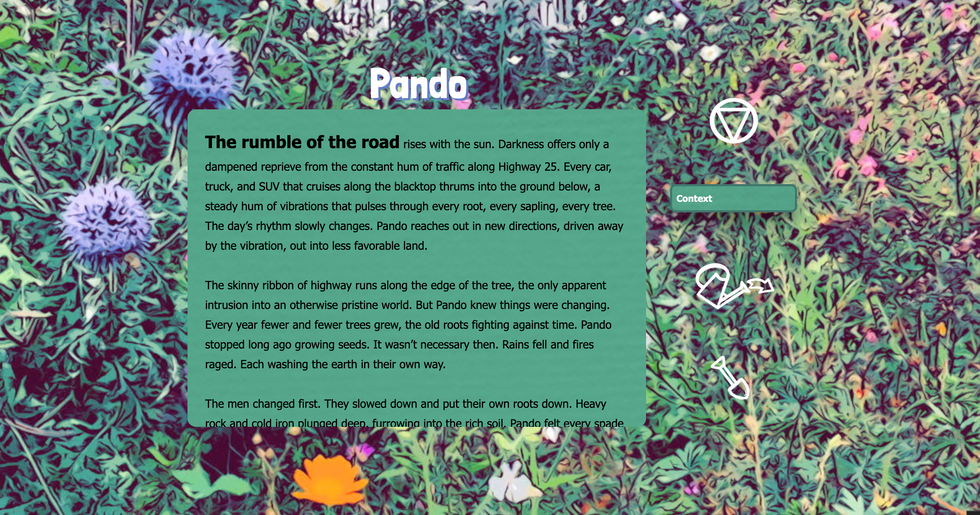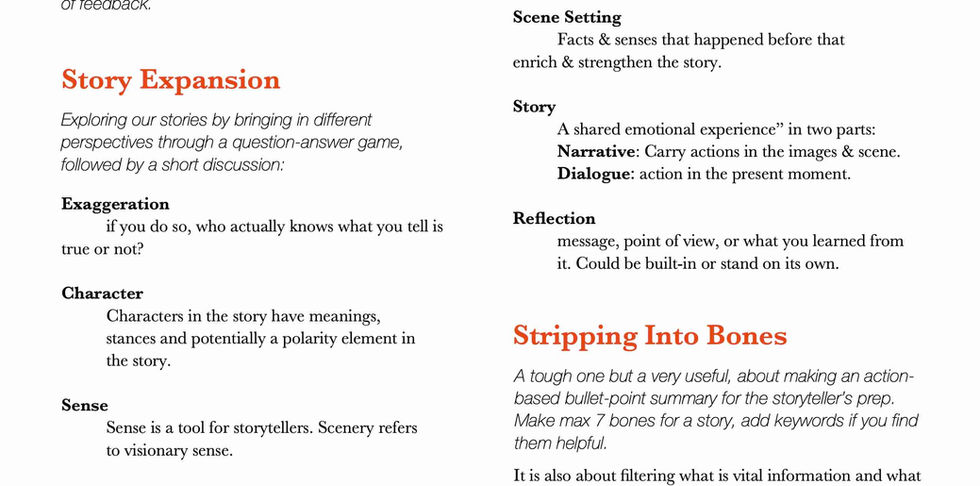The Garden SDG Workshop
For the past six months, we have been planting The Garden, and we are excited to finally share this Sustainable Development Goals educational workshop with you. We aim to help students make sense of their own narratives and inspire them to add their voice to the
global discourse in a 2.5 hour workshop for 15 students.
The Garden is an interactive platform that allows students to explore narratives in all media forms.
.png)
This exploration of the 17 UN Sustainable Development Goals aims to start a positive dialogue about them.
.png)
Students are encouraged to think about the role their own narrative can play in change.
Why we're excited!

Connor

Paulina
How the workshop works:
The workshop begins by immersing the participants in The Garden, starting with this video.
Once in The Garden, each student will follow their own path through the collection (there are currently more than 50 different stories). Each story has been selected for its connection to one or more of the Sustainable Developmental Goals with content from as wide a range of perspectives as we could find.
Each story was also selected based on the emotional frame of the piece and its place in the bigger picture. Most pieces that we liked but finally did not include were angry, confronting, or destructive stories. These stories have their place in our world, but we want The Garden to be a positive experience.
The rest of The Garden is the "workshop" bit, a sense-making dialogue about the emotions of the experience. Together we will explore what was felt, and how these stories may change our perspectives.
This conversation is inspired by The Visual Matrix Method, with one key twist. In the visual matrix, the participants are all viewing the same collection of art simultaneously. In The Garden, the specific images drawn on in the discussion are not shared by the entire group. Instead, The Garden prompts a round of storytelling, where participants share their own experiences and look for common threads in the conversation.
Towards the end of the workshop, we will begin to turn towards each participant's own narratives, and how they feel about them now. To do this, we will use a version of the Power Walk exercise (page 39 of this toolkit) to help participants explore how their perspective aligns with the larger narratives surrounding the issue that touches them the most.












